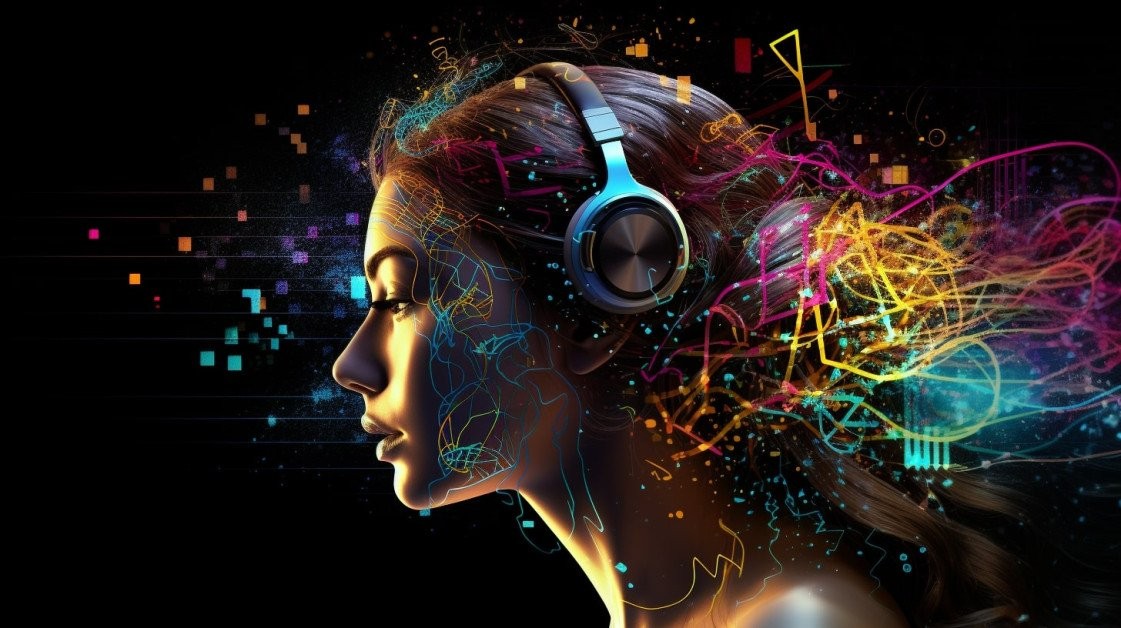Music has been an integral part of human culture for centuries, captivating our senses and evoking emotions. Beyond its aesthetic appeal, music has a profound impact on our well-being and mental health. In this article, we will delve into the fascinating world of music and explore the various effects it has on our minds and bodies.

The Power of Music
Enhancing Mood and Emotional Well-being
Music has the remarkable ability to influence our emotions and uplift our spirits. Whether it’s a catchy pop tune or a soothing classical melody, the right music can instantly change our mood. Research has shown that listening to music can reduce anxiety, blood pressure, and pain, as well as improve sleep quality, mental alertness, and memory. It can also facilitate opportunities for emotional expression, allowing us to connect with our innermost feelings.
Boosting Cognitive Function
The effects of music extend beyond our emotions and into the realm of cognitive function. Studies have demonstrated that music can enhance memory and cognitive performance. It has been found that background music can improve focus and concentration, making it an effective tool for studying or engaging in mentally demanding tasks. Moreover, active music-making positively affects neurotransmitters, such as dopamine and serotonin, which play a crucial role in mood regulation and cognitive function.
Promoting Physical Health
Music not only nourishes our minds but also has a positive impact on our physical well-being. Engaging in rhythmic activities such as dancing or playing a musical instrument can improve coordination, motor skills, and overall physical fitness. Additionally, music has been found to reduce stress levels and lower cortisol, a hormone associated with stress. It can also serve as a form of therapy for individuals with chronic pain, helping to alleviate discomfort and improve their quality of life.
The Therapeutic Potential of Music
Music Therapy
Music therapy is a specialized field that utilizes the power of music to address various physical, emotional, and cognitive needs. It is an evidence-based practice that involves a trained music therapist using music interventions to achieve specific therapeutic goals. Music therapy is effective in treating conditions such as depression, anxiety, and post-traumatic stress disorder (PTSD). It provides a safe and non-invasive way for individuals to express themselves, process emotions, and find solace.
Harmonizing Mental Health
The beneficial effects of music on mental health are well-documented. Music can reduce symptoms of anxiety and depression, providing a sense of comfort and relief. It can serve as a form of self-care, allowing individuals to escape from the pressures of daily life and find solace in the melodies and rhythms. Moreover, music therapy has been successfully used in clinical settings to support individuals with mental health disorders, helping them to cope with their symptoms and improve their overall well-being.
Conclusion
The effects of music are far-reaching and encompass various aspects of our lives. From enhancing our mood and cognitive function to promoting physical health and well-being, music has the power to transform our experiences. Whether we are listening to our favorite songs or engaging in music therapy, the effects of music are undeniable. So, the next time you find yourself in need of a mood boost or a moment of relaxation, turn to the power of music and let it unveil its magic.
Remember, the effects of music are unique to each individual, so explore different genres and styles to find what resonates with you. Let the melodies guide you on a journey of self-discovery and emotional expression.


